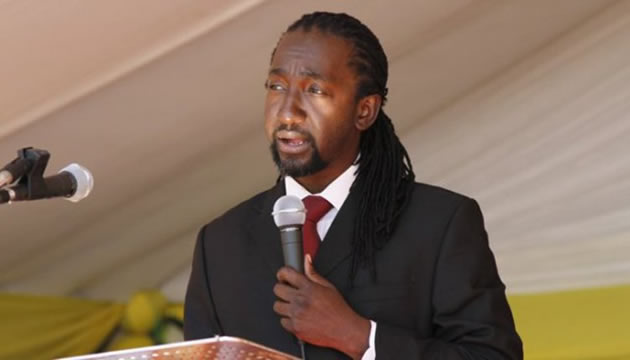Celebrating life, living, surviving on organic food


Varieties of mushrooms including checheche, tsvuketsvuke, nzeve, huvhe and, of course, the ubiquitous nhedzi as seen above are part of the rich organic African relishes of old
Dr Sekai Nzenza on Wednesday
I also wondered if it was at all possible to go back and live by the river, grow organic food and not fear the drought. But Piri said that was no longer possible for us who have tasted the urban lifestyle, eaten rich sweets and drunk too much coffee. But I do sometimes hope we can turn back the wheel of rapid development and return to that idyllic village past, where we can grow organic food, survive and eat what we grow.
Down here along the Save river basin between the Hwedza mountains and Dorova, most of our relatives eat what they grow. Everything is organic. Whenever I come down here to visit, I often look back to the past and ask why my grandparents did not settle down here after losing their fertile land to European settlers and tobacco farmers in the 1930s.
Instead of tracking right down through hills and mountains as far as this river basin, they chose a dry place closer to a proposed bus route so that my uncles could go and do seasonal labour on the white man’s farm.
In the 1950s, 60s and 70s, my uncles left the village and endured chibaro or forced labour. As farm labourers, they sometimes got whipped on the backs by the African foreman or even by the European farmer himself. They received a few shillings to pay the Rhodesian government’s imposed dog, cattle, hut and bicycle tax. After making enough money to pay the taxes, my uncles came home carrying sugar, cooking oil, soap, bread and sweets for every single child in the village compound.
We took our sweets to school, so we could show off to those children who lived in the Save river valley. In those days, when I was growing up in the village, we used to say children from the Save river basin were not as civilised as we were. Our measure of civilisation and development was based on access to sugar, bread, flour, sweets and possibilities of getting on the bus to Salisbury (now Harare) where we could catch glimpses of white people. The children from the river valley had never seen Europeans, except in pictures. They also did not know the taste of fried chips, Fanta or Coke. We counted ourselves lucky.
Most of the children from that river valley never went past Grade 3 because the journey to school was too long, walking over steep hills and mountains. They often married in their early teens. When the liberation war for independence came, the people in the Save river basin stayed there. We heard stories about incidents of torture, killings, sell outs and some major atrocities that happened during the war. But we hardly talk about all that pain of war now because it brings back anger and sad memories.
Many years after colonisation, the liberation war for independence and the land reform, some of the young men from the valley left for the resettlement areas, minda murefu. They now live as far away as Karoi or Hurungwe where their crops sometimes get trampled upon by elephants.
But, those who stayed behind in the Save river valley have continued to farm and grow plenty of food.
This year, due to the drought caused by the El Nino or dry spell, some people in our village face starvation. They will wait in long queues for donor food handouts. They will endure an empty harvest, buy more seed and fertiliser, pray for rain in November, plough and then wait for the harvest in May or maybe June next year.
As we experience the worst drought we have ever seen, our relatives who live in the river valley only hear of hunger. Despite the long dry spell that killed most crops, here in the Save valley, the maize planted in early January is promising to bring a good harvest. This year, the relatives we used to mock for not having access to bread and sweets, will be feeding us. They use the same old organic methods of gathering mulch from the hills then add cow, goat and chicken manure.
This season they have fresh okra, sweet potatoes, fresh maize, pumpkin leaves, tomatoes, kale, nyevhe, mowa, derere remashizha and many of those organic foods we grew up eating. When more rains came last month, the Save river was in flood for days. The hippos moved further down river and crocodiles hid in the swamps.
We waited for our cousins, vekwaZenda, to bring us cat fish. But they did not do so for days. They said, when the river is in flood and quiet, you do not get any fish at all. But once the floods subsided last week, they used nets to catch hundreds of long tailed cat fish with whiskers. They cut the fish with a sharp knife, took the guts out, cleaned and pushed a stick right across the fish’s stomach so it remained open. They added salt and hung the fish over smoking fire for a day or two. Then the fish was all dry and ready to be sold. Depending on size, each fish cost from 50 cents to a dollar.
Over the Easter break, I walked down to the Save River valley with my cousin Piri. It was a long walk right down the steep hills, along flowing river streams, passing small water falls, through the jungles. We picked up varieties of mushrooms on the way. There was matindindi, that thick brown mushroom growing near rocks and takes the colour of the soil that it is growing in. You never cook and eat matindindindi when it is fresh because it is poisonous. You have to break it, boil it and then dry it in the sun. Later on, you boil it again and add peanut butter with fresh chilli. My grandmother, Mbuya VaMandirowesa, used to say, matindindindi when dried and cooked properly, tastes better than meat. That was probably true.
Apart from matindindi, we also picked varieties of mushrooms including checheche, tsvuketsvuke, nzeve, huvhe and of course, the ubiquitous nhedzi. You still find these mushrooms down here in the Save river valley, in the hills and the virgin forests.
Not only can our relatives from the valley fish and farm, but they can also hunt. Last Monday morning, our cousin Oliver wekwaZenda brought two big rabbits, freshly caught from his traps. He carried them in a sack and I could see the fresh blood leaking through the sack. My brother Sidney examined the dead rabbits and I quickly looked away, feeling sorry for the poor rabbits.
Piri laughed and said that when the rabbit is nicely smoked and made into stew mixed with peanut sauce, it becomes a beautiful dish. “Kakara kununa hudya kamwe,” she quoted an old proverb, meaning, for an animal to look so fat, it must feed on other animals. “The same can be said for people as well,” Sidney said. “Some of us survive by feeding off the flesh or sweat of others.” I had to agree with him, thinking of the way we often buy cheap coffee or other goods produced by the hard work of others who get paid little.
I also wondered if it was at all possible to go back and live by the river, grow organic food and not fear the drought. But Piri said that was no longer possible for us who have tasted the urban lifestyle, eaten rich sweets and drunk too much coffee.
But I do sometimes hope we can turn back the wheel of rapid development and return to that idyllic village past, where we can grow organic food, survive and eat what we grow.
Dr Sekai Nzenza is a writer and cultural critic.










Comments